
March 04, 2025
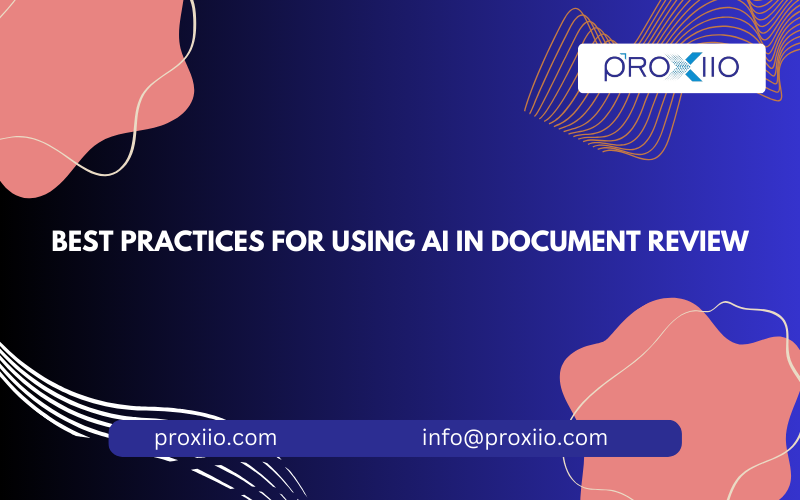
Introduction
Artificial Intelligence (AI) is revolutionizing the legal industry, particularly in document review. By
leveraging machine learning, natural language processing (NLP), and optical character recognition
(OCR), AI tools streamline the analysis, sorting, and extraction of information in legal documents.
These innovations not only save time and reduce costs but also enhance accuracy, allowing legal
professionals to focus on more complex and strategic tasks.
Problem Statement
Traditional methods of legal document review are often time-consuming, error-prone, and resource-
intensive. With increasing volumes of data and stringent compliance requirements, manual review
struggles to keep pace, potentially leading to missed critical clauses, risks, or compliance issues.
Available Solutions
AI addresses these challenges by automating critical stages of document review:
1. Data Collection: AI ensures comprehensive data gathering from multiple sources, minimizing
the risk of missing relevant documents.
2. Document Sorting: Machine learning categorizes documents based on type, relevance, or
content, streamlining the review process.
3. Relevance Assessment: AI evaluates document significance, highlighting crucial information
and flagging irrelevant content.
4. Detailed Analysis: Advanced algorithms detect patterns, identify inconsistencies, and flag
potential risks in contracts and NDAs.
By employing techniques like text classification, entity recognition, and sentiment analysis, AI
delivers insights that enable better decision-making and risk management.
Proxiio’s Solutions
At Proxiio, we leverage AI tools to redefine document review for legal professionals and businesses
alike. Our tailored solutions focus on:
Technology-Assisted Review (TAR): Combining human expertise with AI, TAR enhances
efficiency by training on manually reviewed "seed sets" to identify relevant content in vast
datasets. This iterative process improves accuracy and reduces costs, ensuring consistency
and scalability for even the largest legal teams.
Generative AI Applications: Beyond review, our tools draft legal documents, summarize
complex materials, and create templates. By automating repetitive tasks, Generative AI
allows legal professionals to focus on high-value activities while maintaining precision.
Our commitment to ethical AI ensures that transparency, fairness, and trust remain central to all our
services.
Conclusion
AI has undeniably transformed legal document review, offering unparalleled speed, accuracy, and
efficiency. However, its adoption also brings ethical considerations, including the potential for
algorithmic bias and the need for transparent decision-making. Proxiio addresses these challenges
by implementing robust checks and balances, ensuring that our AI solutions serve the best interests
of our clients while adhering to the highest ethical standards.
Embracing AI in document review is no longer optional, it is a necessity for staying competitive in a
data-driven world. With Proxiio, businesses can confidently navigate the complexities of legal
documentation, leveraging technology to achieve superior outcomes.

April 05, 2024
“Predictable pricing” is a phrase heard often when it comes to alternative legal solutions providers. In fact, it is used so often and without any merit that it has become meaningless to clients of outsourced legal solutions companies. We hear ...
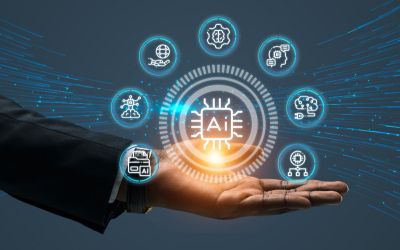
March 12, 2024
“You can have a job if you wanted to have a job for personal satisfaction. But the AI would be able to do everything,” quoted Elon Musk which squarely summarizes the challenge that AI could pose to all professionals including ...
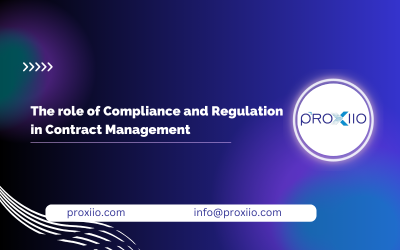
March 12, 2025
IntroductionContracts form the backbone of critical business relationships — vendor agreements, client partnerships, employee contracts, and more. Effective contract management not only streamlines business operations but also mitigates risks related to non-compliance, which can lead to financial penalties, legal battles, ...
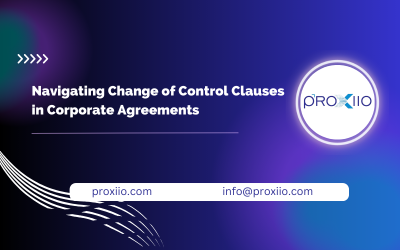
March 05, 2025
Navigating Change of Control Clauses in Corporate AgreementsIn corporate transactions, one of the most critical yet often overlooked aspects of an agreement is the Change of Control (“COC”) clause. This provision governs what happens when there is a significant shift ...
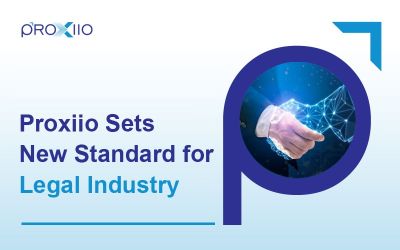
November 22, 2024
Proxiio launched its services in the U.S. market on March 12th, 2024, with the aim of disrupting the alternative legal solution provider space. The company is led by CEO Deepak Mishra, a trusted leader with 30 years of global experience ...

March 04, 2025
IntroductionArtificial Intelligence (AI) is revolutionizing the legal industry, particularly in document review. Byleveraging machine learning, natural language processing (NLP), and optical character recognition(OCR), AI tools streamline the analysis, sorting, and extraction of information in legal documents.These innovations not only save ...